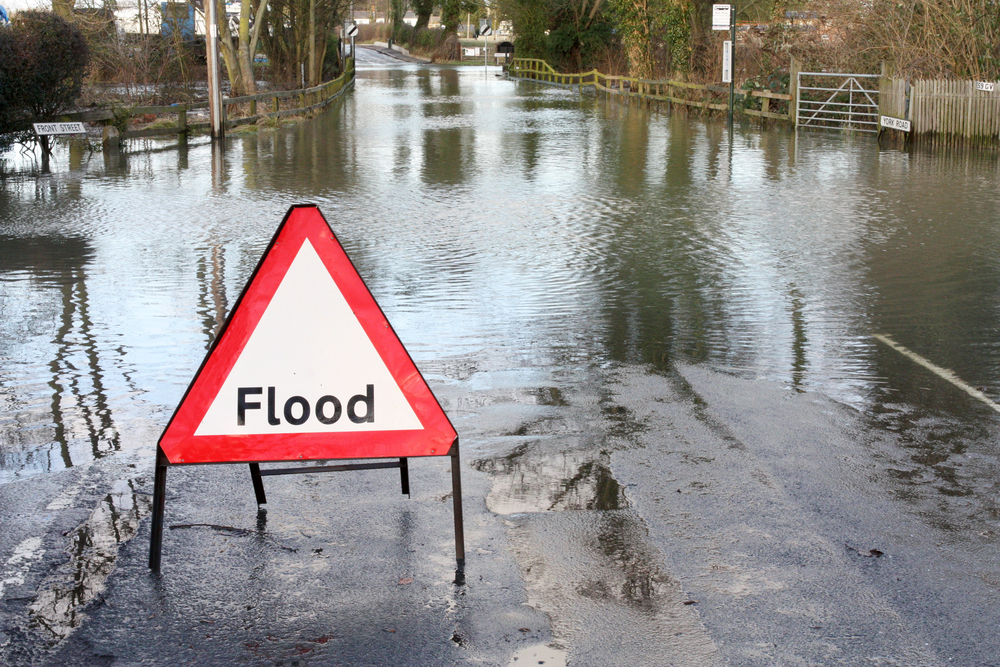Buy To Let
Could the floods sink your home-buying dreams?

Thousands of homeowners, businesses and insurers are counting the cost of the recent devastating floods. But prospective home buyers in low risk areas could also be affected.
As home, business owners and insurers deal with the aftermath of the Christmas and New Year floods, prospective property buyers around the country could find they’re also impacted.
All lenders require borrowers to have suitable buildings insurance with flood cover as a condition of their mortgage, according to the Council of Mortgage Lenders (CML), and this is irrespective of whether an area is considered high risk.
But the availability and cost of flood cover can be a concern, particularly in high flood risk areas, as it could affect mortgage affordability and the amount a lender’s prepared to lend.
In one case Yourmoney.com has heard of, a buyer was unable to insure their property because it stood next to a river and as a result, the lender wouldn’t release the funds due to the buyer not having valid home insurance with a flood risk element attached – a Catch 22 situation.
But this issue can also apply to properties in low risk areas.
Postcode lottery
Bizarrely, you could find the property you’re buying shares the same risk profile as a home that’s been flooded or in a high risk area, even if your house is unaffected or actually considered low risk, says Ray Boulger of independent mortgage adviser firm, John Charcol.
This is because some insurers base their risk assessment of the property on the first part of the postcode, while others look at the whole postcode.
If the property falls in a high flood risk area, customers may be able to get building insurance but only with a ridiculous premium and excess, and there’s a chance their mortgage application may then be rejected anyway.
Boulger explains: “If there’s a very high excess and/or premium on the insurance, the lender will get nervous, as it’ll need to be able to re-sell the property in case of possession. A high premium or high excess affects the likelihood of being resold, so the lender may not feel the property’s a suitable security or it could decline the mortgage offer or attach a special condition on the insurance.”
From April 2016, the cost of flood insurance for properties at the highest risk of flooding – around 300,000 according to the British Insurance Brokers’ Association (BIBA) – will be capped, thanks to the launch of the Flood Reinsurance Scheme, known as Flood Re. It will limit the cost of flood insurance with the level of the premium varying according to the Council Tax band, or equivalent, of the property.
Until then, the insurance industry has committed to make insurance available to those policy holders at high flood risk in the interim.
More pressure on valuers to get the price right
Boulger says he’s not seen any change in lenders’ policies as a result of the recent flooding. YourMoney.com also contacted the big lenders – Barclays, HSBC, Nationwide, RBS and Santander – to find out if they had made any changes to their lending criteria. All but Nationwide said there was no change. Nationwide told us it wasn’t able to comment.
But there could be more pressure on property valuers as before anyone gets a mortgage, the property will need to be assessed. Deciding if it’s in a high risk area forms part of the overall assessment so if there is a problem with the mortgage, ultimately, valuers risk being in the firing line, says Boulger.
The comments are echoed by David Hollingworth of L&C Mortgages, a mortgage broker and adviser firm: “Mortgage lenders won’t have specific criteria relating to property that has previously been flooded and will rely on a valuation by an independent valuer in terms of the property itself. The assessment of the property by the valuer will be crucial in the mortgage process and could result in a declined application if the valuer were to deem the property unfit security.”
Whole swathes of property could in theory become unmortgageable
Hollingworth adds that if the property has been recently hit by floods but only requires redecoration then it may not prove a problem. However, if there is significant structural damage then a new lender is likely to require repair to be completed before it could release funds.
He says: “If more frequent cases of flooding in certain areas were to render property uninsurable then it would follow that the property could not be mortgaged. If insurers withdraw cover for areas that have been badly and repeatedly affected then whole swathes of property could in theory become uninsurable and therefore unmortgageable. That of course would affect property value by limiting the pool of potential buyers even more than the fact that many are likely to be anxious about buying in flood prone areas.”
Difficulties in insuring your property or getting a mortgage
YourMoney.com asked both Boulger and Hollingworth where customers could go in order to insure their homes and successfully obtain a mortgage.
Boulger says that while online comparison sites will give people an idea of rates, a specialist insurer or broker, such as John Charcol are more likely to be needed as they look more favourably on flooding if people find they’re getting declined. He recommends Bluefin for general insurance and gives an example where a recent client who lives on a flood plain in Bristol had been quoted £1,800 and Bluefin managed to reduce the premium by 33% to £1,200.
Hollingworth adds that customers to L&C Mortgages are advised by mortgage brokers on lenders across the market and it doesn’t charge a broker fee either.
Customers could also try Savills Private Finance and BIBA suggests Higos Insurance or Bureau Insurance who will be able to search for appropriate cover for customers. It adds that customers can use its Find-A-Broker Service online or by calling 0370 950 9510.
[article_related_posts]